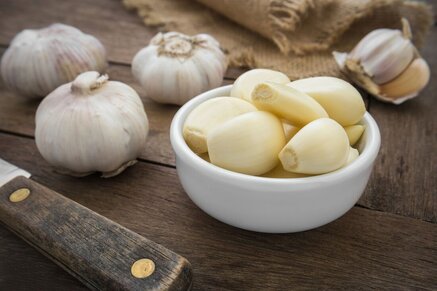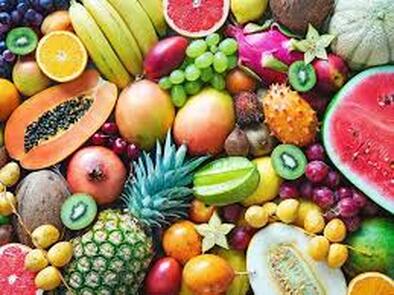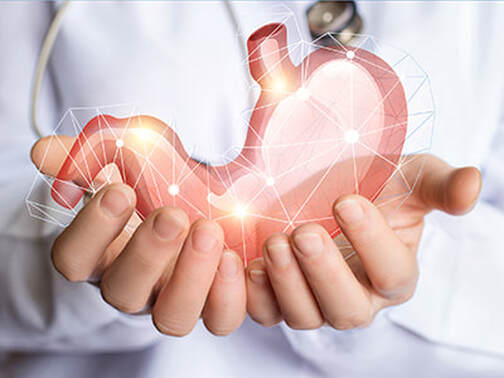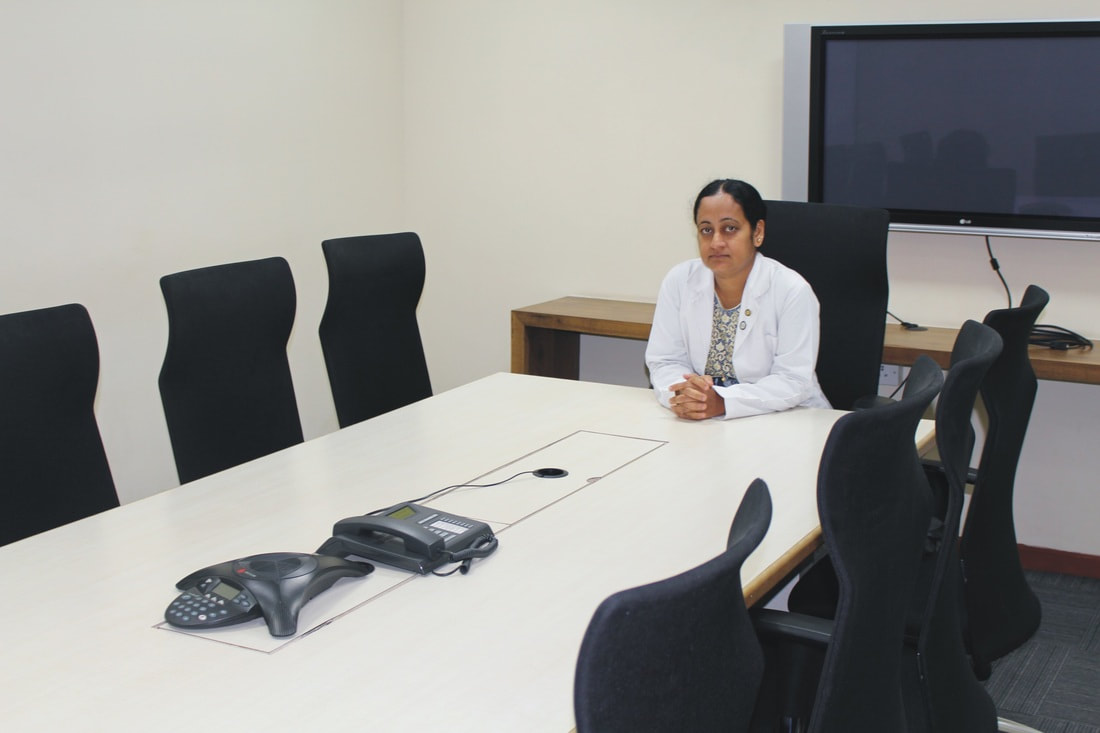Changes in Gastric Cancer Risk with Increased/Decreased Consumption of Fruits & Vegetables6/18/2019
 Garlic & Onions are Believed to be Great Saviors Against Cancer Garlic & Onions are Believed to be Great Saviors Against Cancer Fruits and vegetables are like the foundation of a building. A shaky foundation can never hold a strong building likewise, absence of fruits and vegetables from our meals can never fulfill nutrient requirements and health outcomes. Many hate veggies, some like only a few veggies while a few others love to eat fruits only in the form of smoothies or juices that contain ample sugar. With such likes and dislikes, eating five portions of fruits and vegetables daily becomes a nightmare. Still, their benefits on health and positive effects on our body cannot be sidelined. Gastric cancer remains as the second-most cause of cancer death worldwide and the fourth most common type of cancer diagnosed in people worldwide. It is a disease where malignant cells form in the lining of the stomach. Common risk factors include stomach diseases such as gastric polyps, Epstein-Barr virus, chronic gastritis, etc., diet and age of the person. Men are at an increased risk and old age too puts one at a high-risk category. Stomach is where the food gets digested and what you eat plays a prominent role in assessing your risk of gastric cancer. Salty, smoked foods, eating those foods that have not been prepared properly or stored well and a diet lacking in fruits and vegetables are common risk factors of gastric cancer. While diet is quoted as a common risk factor and we have evidences supporting it from case-controlled studies, those from cohort studies don’t bring us to any decisive conclusions. EPIC Study: Europe EPIC is a broad-scale study that was carried out in 23 centers in 10 different European countries on more than 5,00,000 subjects of which 70% were women aged between 35 and 70 years. The food habits of these volunteers during the last 12 months were noted down in the form of questionnaires, personal interviews or online forms in different countries. There were questions related to smoking, alcohol intake, education, exercise and reproductive history as well. Vegetables and fruits intake were recorded in grams daily. A secondary dietary measurement was taken from around 8% of the study participants using a 24-hour dietary recall to note down consumption of total fruits, total vegetables and total fruits and vegetables consumption. After excluding participants due to various reasons such as previous prevalence of cancer, insufficient information and so on the final number consisted of 477,312 participants, in which 683 (almost 60% of them were men) of them suffered from stomach adenocarcinomas (gastric cancer or GC), who were followed for around 11 years. Results were observed for all stomach cancer as well as cardia, noncardia, intestinal and diffuse subtypes. Analysis showed that:
Shanghai Men’s & Women’s Health Studies Gastric cancer exists as the second-most common type of cancer next to lung cancer in China and also is the third cause of death due to cancer. There are multiple studies supporting the intake of fruits and vegetables in reducing the risk of cancer-as much as 40% when consuming fruits and 30% for vegetables for the highest versus lowest categories of intake. Whereas, there has also been a meta-analysis showing that the link between reduced cancer risk and produce consumption is weaker-only 18% for high fruits intake and 12% for veggie intake. Two population-based studies, the Shanghai Women’s Health Study (SWHS) & Men’s Health (SMHS) study was conducted to cross check this result and come to decisive conclusions. The SWHS included an 81-item food questionnaire and the SMHS included a 77-item food questionnaire with the major difference between them being: the SWHS included sweet potatoes, combines fresh soybeans, fresh peas and fresh broad beans into a single category while the SMHS collects information on each of these individually. SMHS includes additional items such as chrysanthemum, shepherd’s purse, clover and amaranth, pea shoots and pig’s ham hock. Participants were questioned on the frequency of these foods consumed and the quantity consumed every time they eat a fruit or vegetable. They were also asked about how many months of the year that the volunteers consumed a fruit or vegetable. Both the studies excluded those individuals suffering from cancer, gastrectomy and a haphazard total energy intake <500 kcal or >4000 kcal. All fruits, citrus and non-citrus excluding watermelon, all vegetables, cruciferous, green leafy veggies, alliums, legumes and others, and micronutrients such as vitamin A, vitamin C and E, carotene, retinol, selenium and folic acid were included to create quartiles of intake. Results tabulated conveyed the following:
A meta-analysis of 17 studies showed that consumption of fruits and not vegetables reduced the risk of gastric cancer. There was an inverse associated between fruits consumption and GC risk but no significant difference observed in the case of vegetables.  Micronutrients Protect Our Body Against Health Issues Micronutrients Protect Our Body Against Health Issues Another study focused on the antioxidants present in fruits and vegetables that decrease the risk of GC in individuals. The protective effect of produce has been mainly due to the presence of antioxidant effect of the vitamin contents such as tocopherols and vitamin C. But the number of studies analyzing this effect (antioxidants and risk of gastric cardia cancer (GCC) and gastric noncardia cancer (GNCC)) is extremely limited. One such study focused on the intake of fruits and vegetables and the effect of antioxidants on the risk of GCC and GNCC. Increased intake of fruits did not alter risk of GCC but did decrease the risk of GNCC. Intake of vitamin C was not associated with a risk of GCC but moderate to high intake of vitamin C was linked to a 40% reduced risk of GNCC. Retinol intake was linked to a dose-dependent protective association with GCC but did not prove anything for GNCC. γ-Tocopherol was associated with an elevated risk of GCC (2-fold increased risk) but a decreased risk of GNCC. So, increased intake of retinol proved to be protective against GCC whereas increased intake of fruits, vitamin C, tocopherols and lycopene was protective against GNCC. References Fruit & Vegetable Consumption & the Risk of Gastric Adenocarcinoma: https://onlinelibrary.wiley.com/doi/full/10.1002/ijc.27565 Fruits & Vegetables Consumption & Risk of Distal Gastric Cancer in the Shanghai’s Women’s & Men’s Health Studies: https://academic.oup.com/aje/article/172/4/397/85175 Consumption of Fruits but Not Vegetables Reduce the Risk of Gastric Cancer: https://www.ejcancer.com/article/S0959-8049(14)00150-6/fulltext Fruits, Vegetables & Antioxidants & Risk of Gastric Cancer among Male Smokers: http://cebp.aacrjournals.org/content/14/9/2087 Gastric Cancer Treatment: https://www.cancer.gov/types/stomach/patient/stomach-treatment-pdq Comments are closed.
|
AVOID FRAUD. EAT SMART+91 7846 800 800
|
- Home
- Written Testimonials
- Consult
- Clinics
- Blogs
-
Diet & Nutrition
- Diabetes Reversal
- IVF IUI not needed for PCOS PCOD Infertility
-
Medical Nutrition
>
-
Disease & Conditions
>
- Infertility | PCOS
- Diabetes Mellitus
- Cholesterol
- Hypothyroid
- Kidney Problems
- Hypertension
- Cardiovascular Diseases
- Liver Diseases
- Gastro intestinal disorder
- Cancer
- Metabolic Disorders
- Orthopedic Disorders
- Eating Disorders
- Dietary Recall
- Weight Record Filled By Clients
- Online Payment Transaction Details
- Online Clients Weight Check Form
- Our Program Package Service Charges
- Weight Record 2017 Clients
- Measurements sent by Clients
- Terms & Conditions Of Payment
- Thanks. Your Form is Submitted
- Video Testimonials
- Lifestyle & Wellness
- Lifestyle & Wellness Blog
- Allergy & Intolerance
- Weight Loss / Gain
- Weight Loss / Slimming Blog
-
Disease & Conditions
>
- Life Cycle Nutrition >
- Sports Nutrition >
- Integrity in Nutrition
- Knowledge Centre
© COPYRIGHT 2022. ALL RIGHTS RESERVED. FRST HEALTHCARE PVT LTD.
Dr. Nafeesa Imteyaz of First Eat Right clinic, is the Best Dietitian Nutritionist in Bangalore. Best Dietitian Nutritionist in Pune. Best Dietitian Nutritionist in Hyderabad. Best Dietitian Nutritionist in Chennai. Best Dietitian Nutritionist in Mumbai. Best Dietitian Nutritionist in Delhi. Best Dietitian Nutritionist in Kolkata.



